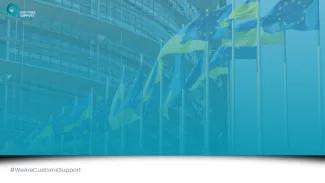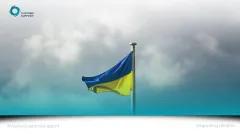What trade concessions have been granted to Ukraine from the EU?
Last year, the European Union granted Ukraine the removal of some trade tariffs and reduced red tape in an effort to help the country economically.
Moreover, the EU and Ukraine expanded on their existing temporary Deep and Comprehensive Free Trade Area (DCFTA) agreement to further support business between the two regions.
This DCTFA was renewed on the 6th June 2023, and will remain in effect until June 2024. Under this agreement, the following trade concessions will apply for Ukrainian goods:
- The suspension of customs duties of fruits and vegetables (subject to the entry-price system), and agricultural products and processed agricultural products subject to tariff-rate quotas.
- The suspension of anti-dumping duties on imports originating in Ukraine as of the 6th June 2023.
- The suspension of the common rules for imports (safeguards) with respect of imports originating in Ukraine.
Swedish Minister for International Development Cooperation and Foreign Trade Johan Forssell commented on the renewal:
“The renewed Autonomous Trade Measures will unequivocally support Ukraine and at the same time they provide the EU with a way of protecting if necessary the internal market from significant increase in imports of some agricultural products.”
Concerns over domestic farmer’s livelihoods addressed
In April 2023, some countries in Eastern Europe banned the import of corn, rapeseed, sunflower seed, and wheat from Ukraine due to the need to protect domestic farmers from competition. The European Union intervened, lifting the ban in support of Ukraine.
Under the DCFTA renewal, the entry price and quota systems protect domestic farmers from an influx of Ukrainian products whilst maintaining support for Ukraine.
The history of the EU-Ukraine Deep and Comprehensive Free Trade Agreement (DCFTA) and looking forwards
The DCFTA between the European Union and Ukraine is more than an economic support package during the war.
Provisionally applied since 2016, the temporary DCFTA is part of the Association Agreement that was signed between the EU and Ukraine in 2014. This agreement is a pledge from the EU to help Ukraine bring change to their legislation, rules, and standards so that they conform to the European Union’s – with the aim for Ukraine to join the community.
At the end of 2022, Ukraine joined the Common Transit Agreement, allowing for the use of transit documents and to suspend duty on movements through the community.
The EU has committed to supporting Ukraine throughout the war, and continues to work towards their reform alongside their extraordinary assistance in the short term.
The ongoing impact of the war on customs and supply chains
Despite positive support and reforms surrounding Ukraine and trade, the war still impacts supply chains globally. The following general restrictions still apply for trade between the EU and Russia:
- The EU prohibits the sale, supply, transfer or export to Russia of specific goods and technologies in oil refining, and related services.
- The EU has an export ban in place for goods and technology in the aviation and space industry, as well as a prohibition on the provision of insurance, reinsurance, maintenance, technical and financial services related to those goods and technology.
- The EU has restrictions on exports of dual-use goods and technology, as well as restrictions on exports of certain goods and technology which might contribute to Russia’s technological enhancement of its defence and security sector. This includes semiconductors and cutting-edge technologies.
As such, Customs Support cannot process your import clearance or export clearance relating to movements of these goods to or from Russia.
Looking to trade with Ukraine?
Customs Support’s customs consultants are here for you throughout the EU and UK. If you’d like to know more about the trade concessions with Ukraine, or how to optimise your supply chain with digital customs clearance, you can contact one of our experts today.














